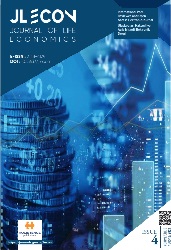Türkiye’de mahalli idareler bütçe harcamalarından kimler faydalanıyor? (2006-2020)
Who benefits from local government budget expenditures in Turkey? (2006-2020)
Author(s): Birsen NacarSubject(s): Governance, Economic policy, Economic development, Public Finances, Socio-Economic Research
Published by: Rating Academy
Keywords: Social profit; social wage; public expenditures; local governments;
Summary/Abstract: The aim of this study is to investigate how the local governments expenditures are allocated among social classes in the period between 2006 and 2020 in Turkey. For this purpose, two explanatory concepts are used. These are the concepts of social profit and social wage. The social profit refers to the resources transferred from local governments expenditures to the income or the consumption of the capital class. The social wage, on the other hand, shows the contributions made to the income or consumption of the working class from the local governments expenditures. The classification of local governments expenditures based on these two concepts allows to determine the resource uses of the local governments, which transform into the social profit and the social wages. The findings in this study reveal that while an average of 70 percent of the expenditures of local governments in Turkey is allocated to the income or the consumption of the capital class, the contribution made by the local governments to the income or the consumption of the working class is around 30 percent. These results reveal that the interests of the capital class dominate the budget politics of local governments in Turkey.
Journal: Journal of Life Economics
- Issue Year: 8/2021
- Issue No: 4
- Page Range: 475-483
- Page Count: 9
- Language: Turkish

